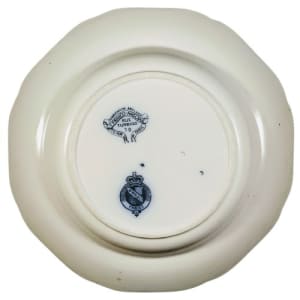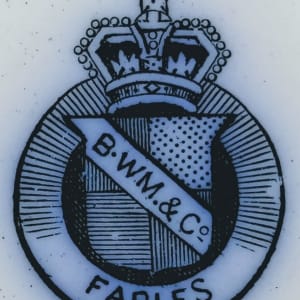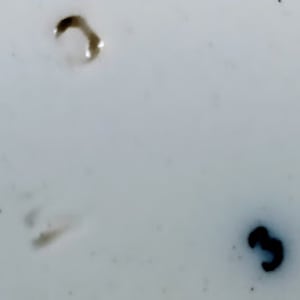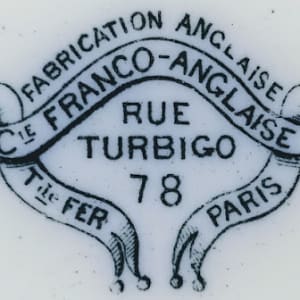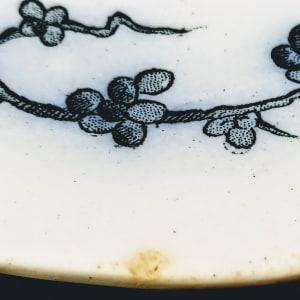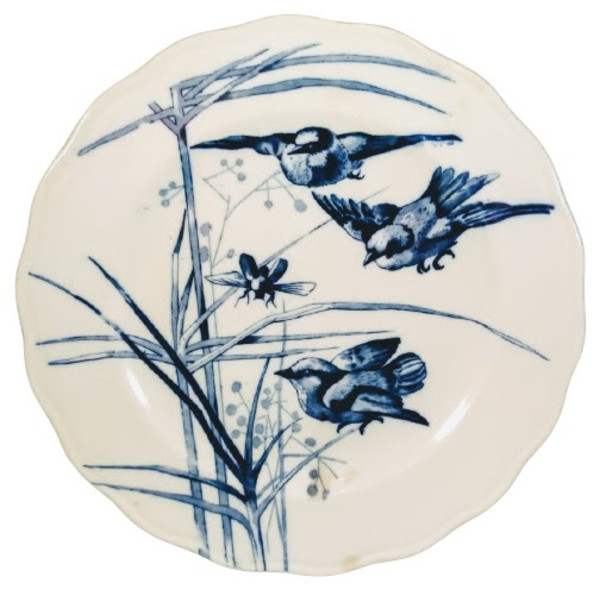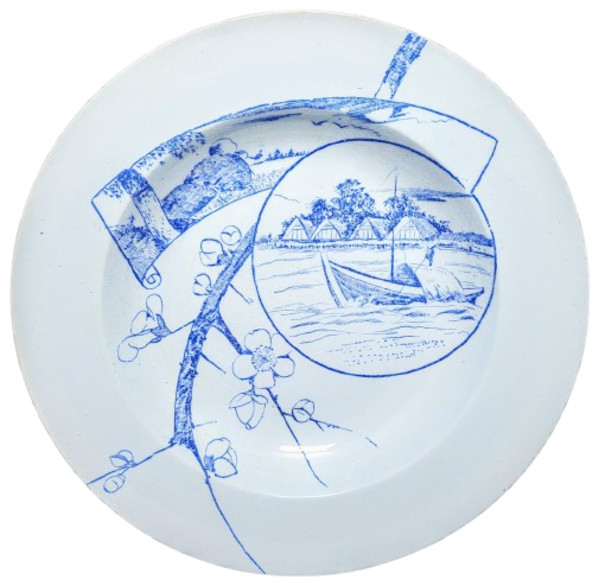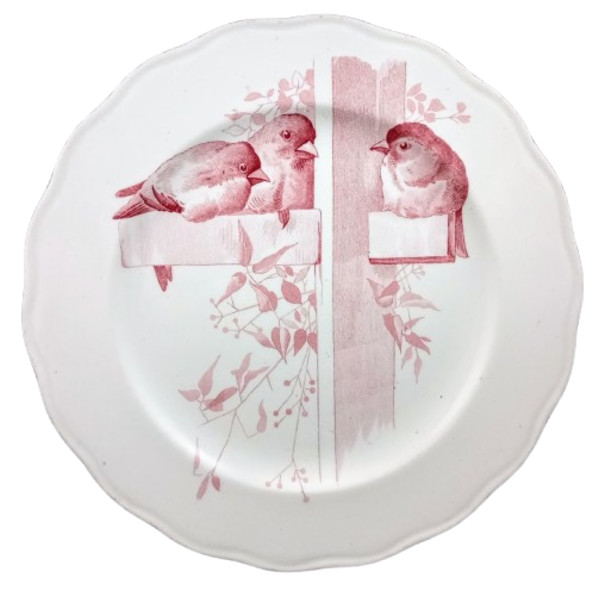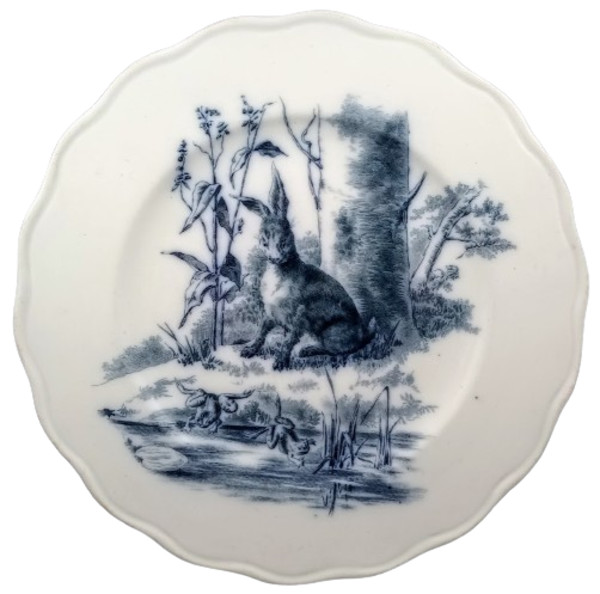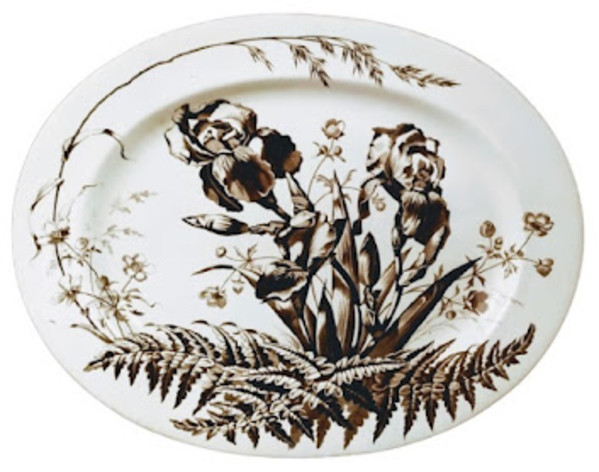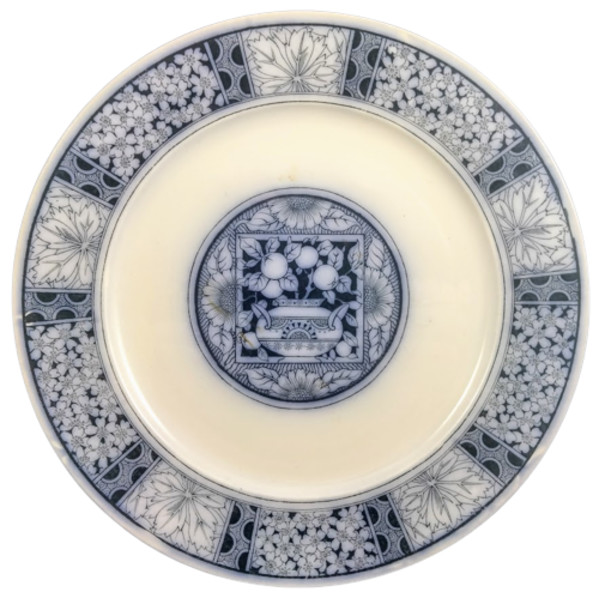- Brown-Westhead, Moore & Co.
- Fables: The Frog and the Rat, c. 1862-1890
- Earthenware
- 9.8 x 9.8 in (24.89 x 24.89 cm)
-
Not For Sale
Plate, 9.8 inches diameter. Blue Transfer. Printed and impressed maker's marks for Brown-Westhead, Moore & Co. Printed importer's mark for Terre de Fer, Rue Turbigo 78, Paris. The "Fables" pattern name refers to the fables of Jean de la Fontaine (1621-1695). The fable here is "The Frog and the Rat." A rat and a frog became acquainted, and decided to travel together. The frog, pretending to be helpful, suggests that he and the rat be tied together. This, the frog says, will keep the rat out of harm's way. Eventually, they reach a pond. The frog tells the rat to have courage. He promises that they both will reach the other side of the water. The frog dives in with the attached rat, but when they reach the middle of the pond, the frog dives to the bottom, dragging the poor rat with him! However, the struggling rat attracts a kite who pounces on the rat and drags him off, along with the frog! The moral is: Inconsiderate and ill-matched alliances generally end in ruin. The man who tries to destroy another is often caught in his own snare.
The Cauldon Place works were founded about 1794 and built in 1802 by Job Ridgway. He died in 1814, and the works were carried on by his sons, John and William Ridgway, as Ridgway & Sons. In 1855 the Cauldon Place business passed into the hands of the firm of T. C. Brown-Westhead, Moore & Co. Mr. W. Moore, who had for many years been a valuable assistant of Mr. Ridgway, died in 1866 and his brother James Moore was admitted into partnership in 1875. Mr. James Moore died in 1881, after his nephew Mr. F. T. Moore took the entire management of the potting department. In 1882, Mr. T. C. Brown-Westhead died, after Mr. William B. Moore, the elder son of the late William Moore, (unitedly with his brother Mr. Frederick T. Moore) took the entire management of the business.
In 1876-77 Messrs. Brown-Westhead, Moore & Co. manufactured for the Prince of Wales a splendid and costly china dessert service decorated with finely painted hunting subjects, no two pieces being alike. They also made for the Imperial family of Russia richly decorated dinner tea dessert and breakfast services, all of which orders were obtained in competition with the Sèvres, Dresden, and other Continental manufactories, and also services for the Emperor of Morocco, including punch bowls of extraordinary largeness. In addition to this it is interesting to record that they also made for H. R. H. the Duchess of Edinburgh a series of toilette services from designs drawn by herself.
Medals have been awarded at the Exhibitions of London, 1851 and 1862; Paris, 1855 and 1878; Lyons, 1872; Vienna, 1873; Sydney, 1879; one first class medal and two first class awards Melbourne, 1880 medal and diploma; and Adelaide, 1881, gold medal and first order of merit. The firm were large contributors to the Philadelphia Exhibition of 1876.
- Subject Matter: Aesthetic (Narrative)
- Collections: Aesthetic Transferware, Brown-Westhead, Moore & Co.

